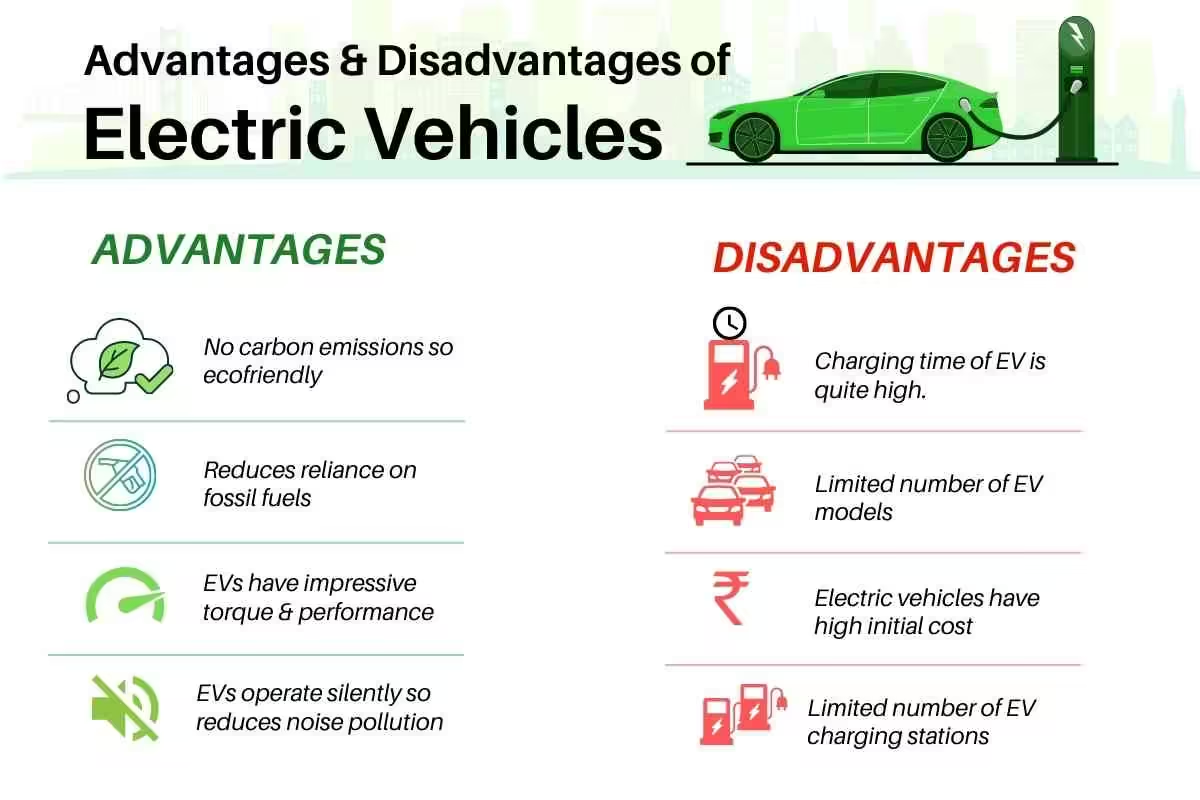India is buzzing with excitement over electric vehicles (EVs). These cars and bikes, powered by electricity instead of petrol or diesel, promise a cleaner and greener future. But, while EVs seem like the perfect solution, they come with a few challenges, especially in India. If you’re considering switching to an EV, here’s a look at the challenges of electric vehicles in India that might affect your decision.

Article Highlights
1. Limited Charging Stations
Imagine you’re on a long drive, and your EV battery runs low. Unfortunately, India still has a limited number of charging stations, especially outside urban areas. As of February 2024, there are around 12,146 public EV charging stations across the country. With approximately 1 charging station for every 135 EVs, this ratio is significantly lower than the global standard of 1 station per 6 to 20 EVs.
For instance, Uttar Pradesh, which has 4.5 lakh EVs, only has 406 charging stations—roughly one station for every 1,103 EVs! This limited infrastructure makes long-distance travel challenging for EV owners in India.
2. Long Charging Time
Unlike petrol or diesel vehicles, which can be refuelled in minutes, EVs take much longer to charge. Depending on the charger type, it can take anywhere from 30 minutes to several hours. This inconvenience, especially during emergencies or long journeys, is a notable drawback of EVs in India.
3. High Initial Cost
EVs are usually more expensive than petrol or diesel vehicles. The battery, a crucial part of the EV, costs a lot. This high price makes EVs unaffordable for many people in India, where budget-friendly options are preferred.
Petrol Car vs. Electric Vehicle Analysis –
| Aspect | TATA Nexon Petrol | TATA Nexon EV |
| Ex-Showroom Price | ₹9,94,900.00 | ₹16,30,000.00 |
| RTO | ₹69,643.00 | ₹0.00 |
| Insurance | ₹49,745.00 | ₹81,500.00 |
| Registration Charges | ₹600.00 | ₹600.00 |
| Others | ₹4,000.00 | ₹4,000.00 |
| FasTag | ₹600.00 | ₹600.00 |
| Hypothecation Endorsement | ₹1,500.00 | ₹1,500.00 |
| Road Safety Cess | ₹1,791.00 | ₹2,934.00 |
| Other Charges | ₹400.00 | ₹400.00 |
| Total Cost (C) | ₹11,23,179.00 | ₹17,21,534.00 |
| Savings (S) | ₹598,355.00 | None |
Even with government subsidies, the initial cost of EVs remains a challenge for many middle-class families.
Also read, SUV Nation: Why India Is Falling in Love with Compact SUVs
4. Battery Life and Replacement Costs
The battery in an EV has a limited lifespan and will eventually need to be replaced, which can be very expensive. In India’s hot climate, batteries can degrade faster, reducing their efficiency. Replacement costs can be high, making the EV less economical in the long run, especially when compared to traditional vehicles that don’t need such costly parts.
5. Lack of Skilled Technicians
Electric vehicles are new to India, and not every mechanic knows how to repair them. Skilled EV technicians are rare, so if something goes wrong, finding someone who can fix it properly is challenging. This can lead to high repair costs and longer wait times if parts are not available locally.
6. Impact on the Environment
EVs are marketed as eco-friendly, but they’re not entirely green. Producing lithium-ion batteries, which power EVs, involves mining rare metals and using lots of water and energy. In addition, most of India’s electricity comes from coal, meaning charging your EV indirectly contributes to pollution. So, while EVs reduce air pollution on the roads, their production and energy sources still have an environmental cost.
7. Lower Resale Value
In India, resale value matters. Right now, the resale market for EVs isn’t well-established, so they tend to have lower resale values than traditional cars. The high replacement cost of batteries, along with concerns about battery life, make buyers hesitant to purchase second-hand EVs, resulting in a less attractive resale value for EV owners.
8. Limited Range on a Single Charge
One of the biggest concerns with EVs is their limited range. Most electric vehicles can only cover a certain distance on a full charge—often much less than traditional petrol or diesel vehicles can on a full tank. For instance, many affordable EVs can go around 150-300 km on a single charge, depending on driving conditions.
This limited range can make EVs unsuitable for long-distance travel, especially given India’s current charging infrastructure limitations. For drivers who regularly travel long distances or live in areas without reliable charging points, this limited range can be a major drawback.
In Conclusion: Is an EV Right for You?
Electric vehicles are an exciting step toward a cleaner future, but the challenges of electric vehicles in India—such as limited charging stations, high costs, and environmental concerns—are real issues to consider. While the government is working towards improving infrastructure, potential buyers should weigh the pros and cons before making the switch.
With India’s goal to electrify the transportation sector by 2030, a target of 46,000 charging stations across the country has been set to address these issues. For now, with only 12,146 charging stations and an uneven distribution, areas like Uttar Pradesh still see one charging station for every 1,103 EVs. However, for now, addressing the challenges of electric vehicles in India is crucial for their broader acceptance.